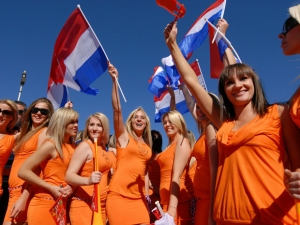“We prefer domestic products over imported ones”
We have a bias against foreign products and favor domestic ones. This domestic country bias is manifested in our product perceptions as well as our buying behavior.
One should be careful though; the domestic country bias does not apply to all product categories. Moreover, this bias is more prevalent when our patriotic feelings are activated (e.g. Independence Day in the US, Kingsday in The Netherlands, or when your national team wins the World Cup).
Scientific research example:
Imagine you consider buying a DIY-drill. Do you think your preference is dependent on your nationality, or not? Of course, Balabanis & Diamantopoulos (2004) found that:
- 72% of the Brits consider British DIY tools first (when the attributes and price are comparable).
- The same accounts for food products, furniture, DIY tools and toys.
However, in the same study, they found that there’s no British majority when it comes to buying e.g. TV sets (here 67% would primarily consider a Japanese product), fashion wear or even cars. Hence there’s a strong interaction between the domestic country bias, and the Country of Origin-effect (our bias to prefer products from stereotypical countries”.
Online Persuasion tips:
Determine your customers’ domestic origin (via use a social plugin, login+CRM data, IP-address and/or browser settings).
When operating abroad:
[checklist]
- Do not promote your domestic origin as a USP
- Try to sell your product through local domestic etailers
- On patriotic days, save your online marketing budgets for better times
[/checklist]
When operating domestically:
[checklist]
- Subtly remind your customers of your shared domestic origins (also through using domestic icons, colors,…)
- Use a local suffix instead of a .com .eu etc one
- On patriotic days, boost your online marketing efforts and increase your ‘domesticity’.
[/checklist]
Further reading on Equivalence Framing:
- Verlegh, Steenkamp, Journal of Economic Psychology, Volume 20, Issue 5, October (1999), Pages 521–546, “A review and meta-analysis of country-of-origin research”
- Balabanis & Diamantopoulos. Academy of Marketing Science. Journal; Winter (2004); Vol 32, 1; “Domestic Country Bias, Country-of-Origin Effects, and Consumer Ethnocentrism”.
- Cheng-Lu Wang, Noel Y.M. Siu, Alice S.Y. Hui, (2004) “Consumer decision-making styles on domestic and imported brand clothing”, European Journal of Marketing, Vol. 38 Iss: 1/2, pp.239 – 252


